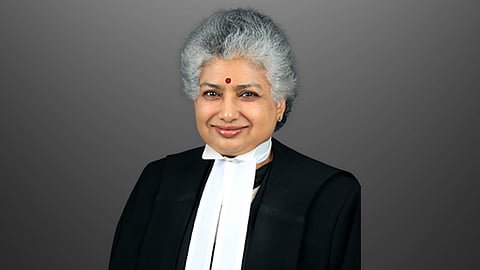
- News
- Columns
- Interviews
- Law Firms
- Apprentice Lawyer
- Legal Jobs
- हिंदी
- ಕನ್ನಡ

A nation can only be as independent as its institutions like the judiciary, a central bank, the election commission, public service commissions, etc., Supreme Court judge Justice BV Nagarathna said on Monday.